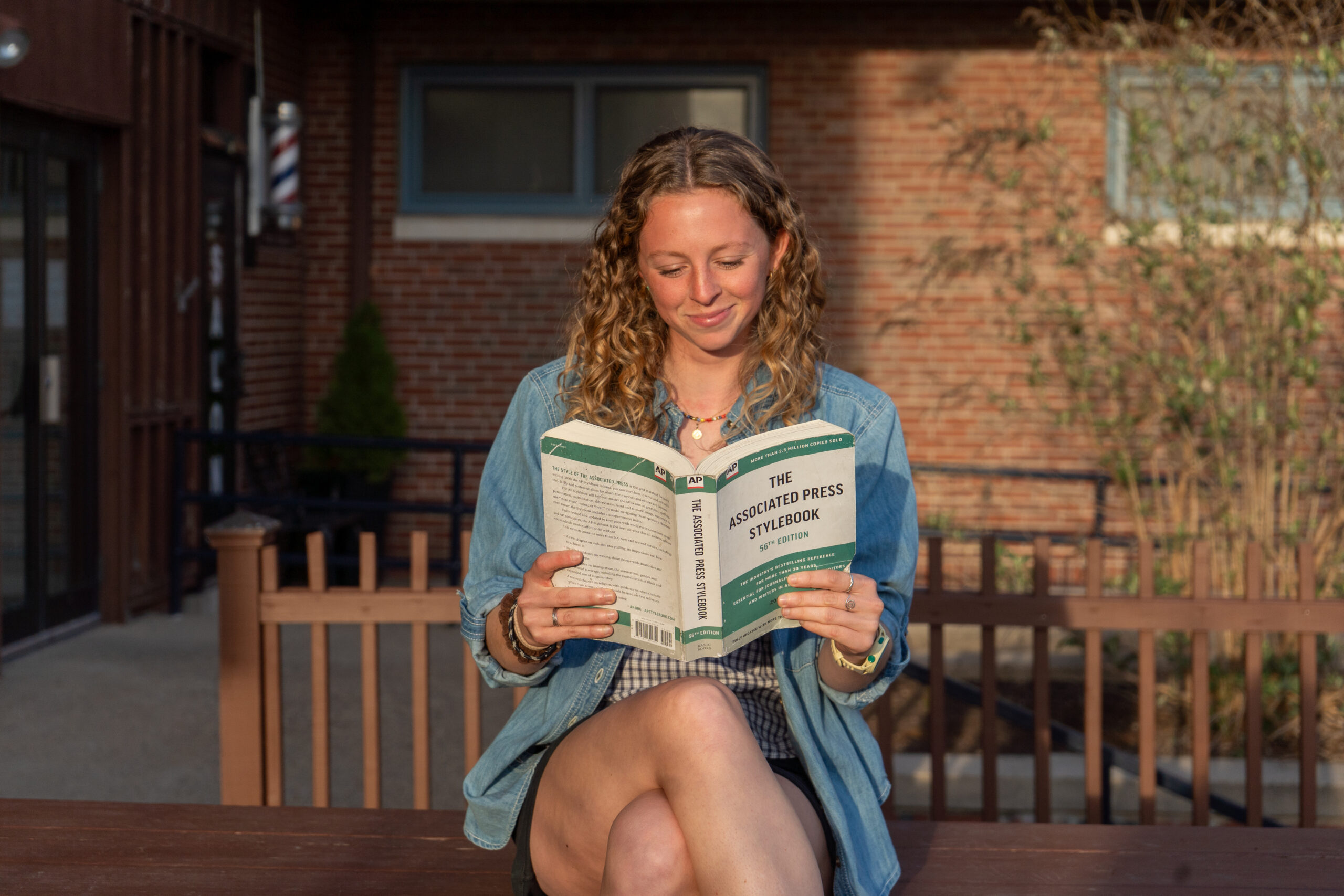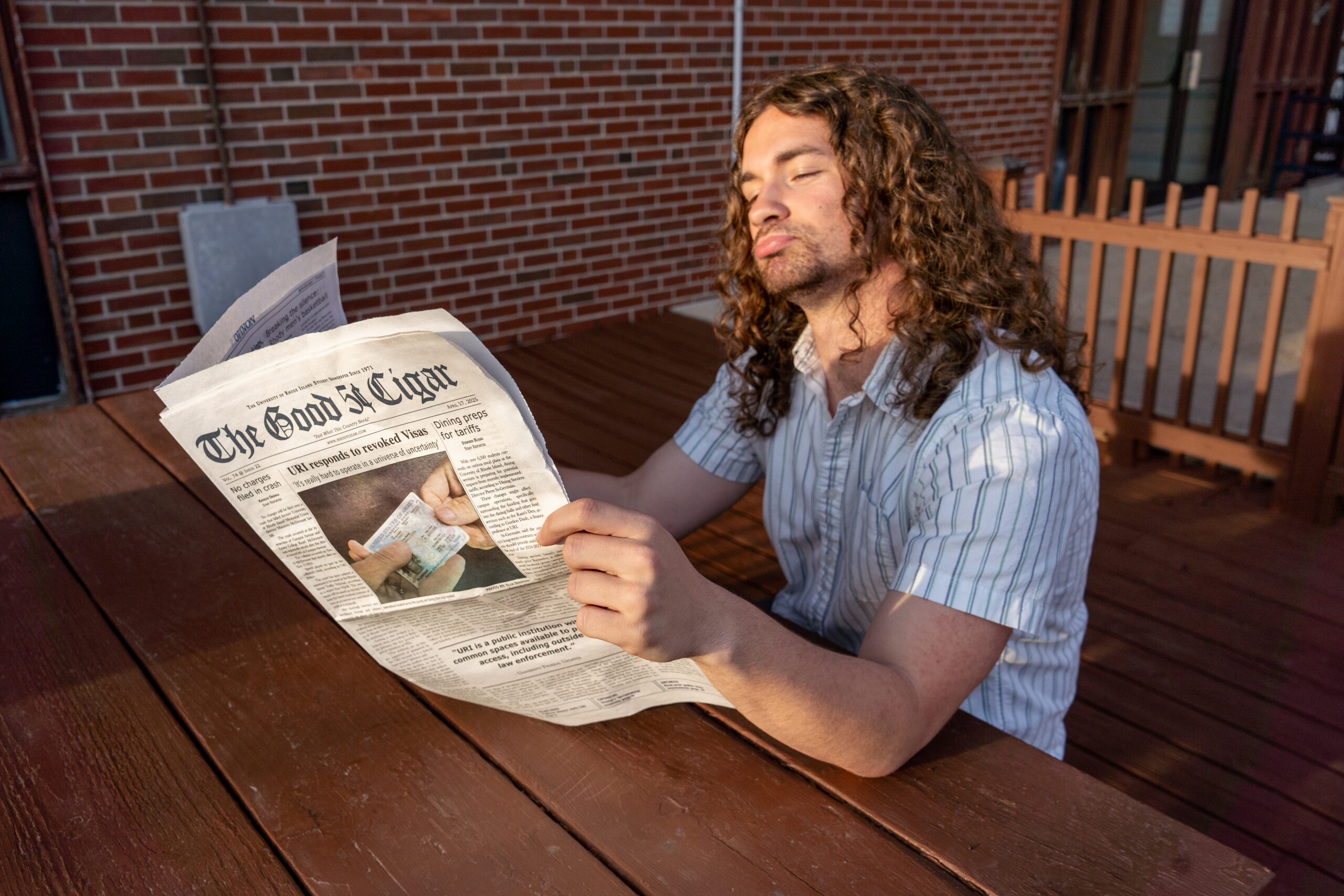This is the first installment of a semester-long series that documents my exploration of faith on the University of Rhode Island campus. The goal is to sit down with every religious center on campus and learn about their religion and community.
Before I get started, I should tell you a little about my own beliefs. I don’t have any. None. Zip. Not one belief. I don’t practice any religion, don’t believe in karma, not Santa Clause, nothing. That’s not to say I’m an atheist. My lack of beliefs is due to my inability to find a religion that makes sense to me. If I can fully believe in the scripture, then I would practice a religion. Belief remains my greatest obstacle.
I am mostly doing this because if my goal is to live with high moral standards and progress as a human being, maybe religion is the best route.
Anyway, let me get started. Last week I sat down with the Muslim Community Center on campus. That’s the building across from the Emporium, next to the laundry mat. When I got there, I met the center’s chaplain, Qutaiba Albluwi.
Albluwi lectures throughout Rhode Island, including at other religious centers. First, he told me a little about the Muslim Center. Because Muslims are supposed to pray five times a day, any Muslim student can get a key to the building and access it at any time.
After a quick tour, we sat down and had a discussion that lasted about two-and-a-half hours. Going into it, I had very little knowledge so I asked him as many questions as I could think of about Islam.
From my conversation, I got the sense that Islam is all about progression. This was the biggest selling point for me. If my goal is to truly become the best person I can be, the Quran seems like a great guidebook. And I don’t mean this in the sense of progressing professionally, but as an overall person. Being a Muslim is more than just accepting God into your life, it’s about living with a high standard of morals. That seems to be what separates Islam from other religions. There is no guaranteed salvation. You have to live a moral life and then, maybe, you will earn salvation.
However, to become a good Muslim, I would have to diminish my vices. That means no smoking, drinking or sex before marriage. It also means praying five times a day and fasting one month a year during the day. I know…. Not easy. The praying and fasting I could do. But the vices would be tough. I would have to stop doing some of my favorite things in life.
However this doesn’t detract me from Islam. At a point in my life, I think I could commit to this. It would be tough but the Muslim community is there and has the same goals. Also the Quran would help answer my questions.
Another selling point was when Qutaiba discussed the importance of community. He said one of the pillars of Islam is charity. Muslims, who have the money to do so, must donate 2.5 percent of their income to charity. And that money doesn’t go to the mosques. It goes to the poor, those that need it. Albluwi said he’s interested in changing social problems more than anything else. It seems like more than other religions, good Muslims back up what they say.  They don’t just accept the religion and pray, but take the Quran’s ideologies and use it in everyday life.
At this point of the conversation, I am in complete agreement with everything he’s said. I’m thinking if I truly want to become the best I can be, this seems like the best route. But, I had to ask about what I feared would detract me from Islam the most. Do I believe in the scripture? I could never commit to a religion that I don’t fully believe, even if I do support and respect what they do.
Albluwi briefly gave me the rundown of Prophet Muhammad and the creation of the Quran. (I don’t think I would do it justice if I tried to retell the stories. Just go on Wikipedia.) He said the Quran hasn’t changed, unlike other religious scriptures. Also, he said Prophet Muhammad, who was illiterate, orally revealed the Quran, which was incredibly intelligent and ahead of its time. So the Prophet could not possibly have created it. It must have been the word of God, Albluwi told me.
So far, I’m with him. Then, he talks about some miracles prophets have performed and this is where I lose him a little. I don’t mean to disrespect anyone’s beliefs and perhaps this is based on my own ignorance, but I have trouble believing some of the miracles performed. I guess this is a problem with a lot of young people from modern liberal states. Modernity and science have become so integral in our lives that we question what we haven’t seen.
All in all, I have great respect for Islam and the Muslim community, especially the one on campus. We share similar ideologies. If you strip yourself from any prejudices, you will realize that Islam makes a lot of sense and only does good for society.
Tune in next week when I see if I can become Buddhist.




